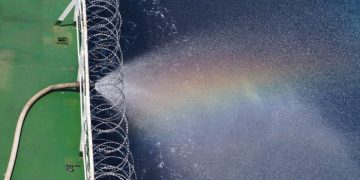PwC Greece establishes Maritime Sustainability Centre
PwC Greece has announced the establishment of a new Maritime Sustainability Centre to assist ship owners with CO2 emissions monitoring of their fleet. PwC Greece has introduced a new team of specialists focusing on sustainable business in the shipping sector, the Maritime Sustainability Centre, led by Ms. Helena Athoussaki. Working within PwC’s Shipping Advisory Group, the Maritime Sustainability Centre will offer services for shipping companies to enhance the performance monitoring of their fleet, and compliance with the new EU legal requirements on monitoring, reporting and verification (MRV) of CO2 emissions from maritime activities. The new EU Regulation entered into force on 1 July 2015, aiming to establish an EU-wide system for monitoring, reporting and verifying (MRV) emissions from large ships using EU ports, is the first step towards regulating CO2 emissions reduction from the maritime sector. “Looking ahead and expecting the understanding and preparation phases that will lead up to the first reporting cycle of the MRV system for the maritime sector (January 2018), our firm has set up a dedicated team of specialists to support shipping companies before and after the MRV implementation. We are excited to welcome Helena Athoussaki and the rest of the team, to lead this initiative”, ...
Read more



















































